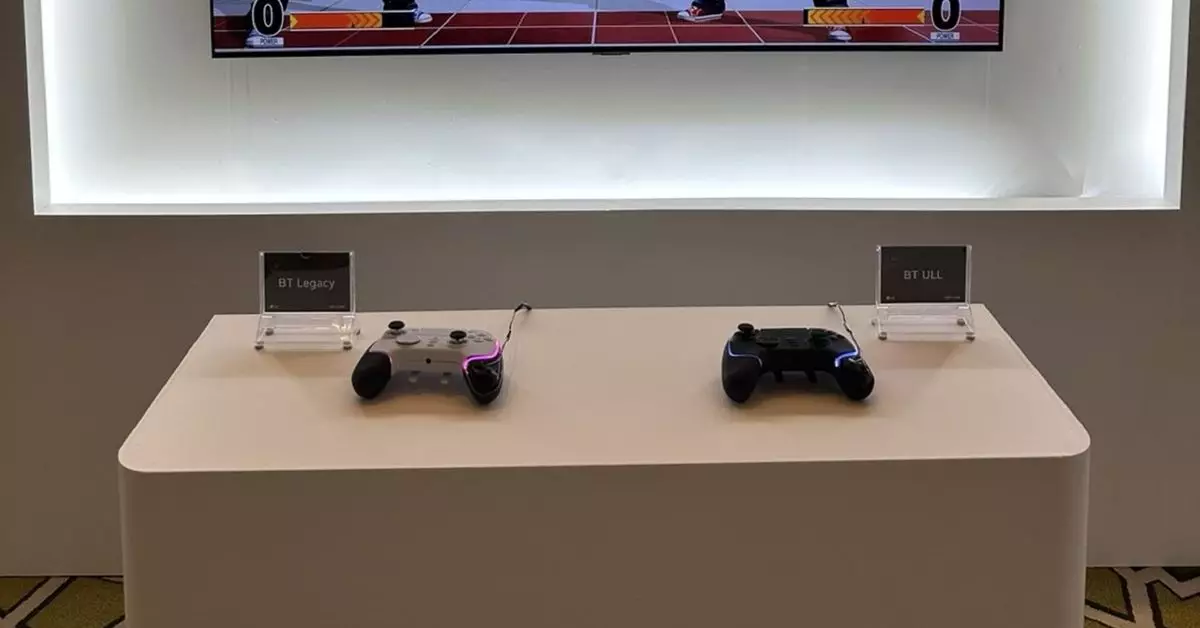The gaming landscape is ever-evolving, and new collaborations are paving the way for exciting advancements in technology. LG, a notable name in the electronics industry, has entered into a strategic partnership with Razer, a leader in gaming peripherals, and MediaTek, a key player in connectivity chips, to create an innovative Bluetooth gaming controller. This partnership aims to address a significant concern among gamers: input lag in cloud-based gaming.
Unveiling Ultra-Low Latency Bluetooth Technology
At the core of this new development is the Ultra-Low Latency (ULL) Bluetooth technology, which is touted to bridge the gap between wired and wireless controllers. LG claims that this Bluetooth controller will be the first to implement ULL, significantly reducing response times to match that of traditional wired controllers. The standard for input lag in gaming devices is crucial, especially for competitive gamers who demand precision and responsiveness. When tested against a conventional controller, LG’s ULL technology showcased a marked improvement in responsiveness across various genres, including first-person shooters and racing games. This innovation could redefine the expectations players have for wireless gaming.
Input lag, the delay between a player’s action and the corresponding on-screen response, remains a critical factor in gaming performance. Ideally, input lag should be minimized to below 10-20 milliseconds for an optimal experience. Wired controllers typically achieve this with ease, resulting in their lasting popularity among hardcore gamers. LG’s anticipated gaming controller, which reportedly features a remarkable 1ms input lag, stands to revolutionize the wireless experience, enabling seamless gameplay without compromising on speed.
Interestingly, Google previously tackled input latency issues through its now-defunct Stadia service by allowing controllers to connect directly via Wi-Fi, effectively bypassing Bluetooth limitations. After the closure of Stadia, Google enabled Bluetooth functionality on its controllers, a move that highlighted the ongoing struggle with input latency. The emergence of LG’s ULL Bluetooth technology represents a significant advancement that may finally resolve these longstanding challenges.
Future Prospects and Compatibility
As gaming technology continues to push boundaries, LG’s upcoming products targeting low-latency connectivity are highly anticipated. The ULL support is intended for select LG OLED and mini-LED TVs, featuring MediaTek’s MT7921 WiFi chipset, set to launch in 2025. Furthermore, LG has plans to certify third-party controllers compliant with ULL standards, fostering a seamless user experience with LG webOS smart TVs. The collaboration with Razer marks an exciting step forward, but the gaming community will be eager for more details, including the pricing and naming of the controller.
With the promise of innovative gaming hardware on the horizon, the gaming community is keenly waiting for further announcements and demonstrations. As the Consumer Electronics Show (CES) draws near, excitement is building for potential new revelations surrounding LG’s ULL-supported controllers and TVs. This partnership reflects a shift towards more responsive gaming technologies, ultimately enhancing the experience for gamers worldwide. As LG, Razer, and MediaTek join forces, they promise a future where input lag becomes a concern of the past.

